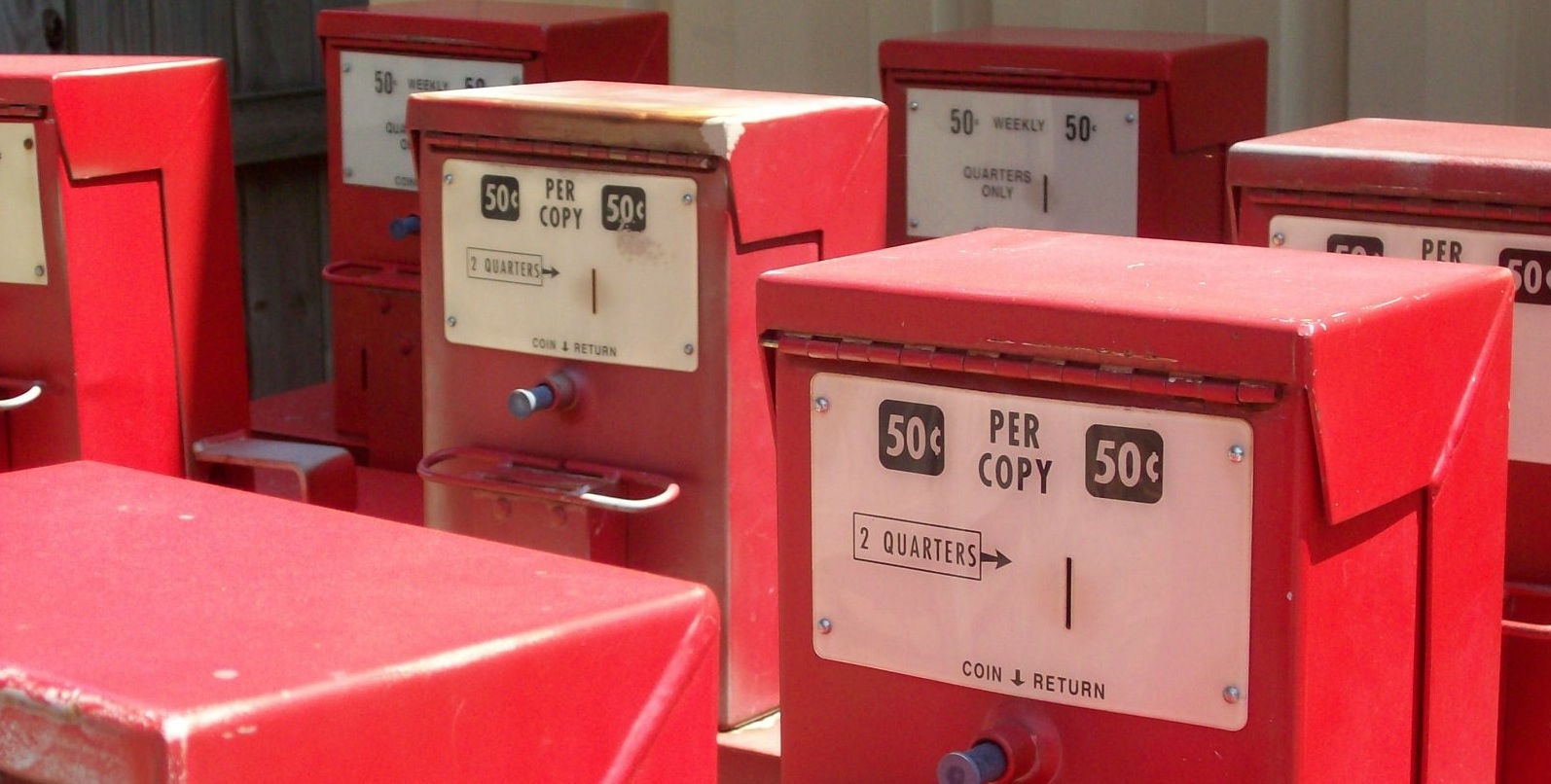by Jamison Shabanowitz, VCOG's 2013 Intern
This summer, VCOG compiled a spreadsheet containing basic information on every print publication, and many online ones, in Virginia. The database includes addresses, editors and publishers, and thanks to data from the Virginia Press Association, circulation figures when applicable.
In a state with over 8 million people, the combined circulation total of all organizations listed is over 2 million, without including the many thousands of hits websites of these publications receive everyday.
Initial reaction to such a large number still demanding print sources may remind people of an old Robin Williams joke about our state: “"There's nothing old about the Old Dominion. Any state that had the good sense to elect Elizabeth Taylor's husband as a senator (John Warner) is with it.”
Yet, as pointed out last week by author and social media guru Nicco Mele while featured on an episode of WHRV’s Hearsay with Cathy Lewis, newspapers still are a critical source of investigative journalism: “Most of the accountability journalism, holding power accountable in the United States, is done by newspapers."
Based on the popularity of print as a source of information about society in this state, Virginians value holding government leaders accountable. Countering our interest in accountability are the financial pressures that threaten the print medium. “The newspaper business model just doesn’t make sense in the digital age,” Mele said. “Advertising and subscription, those don’t translate when you move online. Analog dollars to digital pennies.”
New models of journalism are gradually filling in to take the place of traditional sources. Amazon, the online retail giant that amassed $61 billion in revenue last year, conducted an exclusive interview with President Barack Obama last month that was only available on their Kindle line of products.
Large companies also sometimes own traditional print media, but the important distinction between the emerging form of journalism ownership and the traditional form is that the large companies of print media specialize in owning print media only. There is no elaborate connection between news and products for sale. Requiring purchases of other specific items to consume specific news, rather than just buying the news printed on a piece of paper, threatens the public’s access to information. If Amazon’s owner Jeff Bezos has plans to make access to his latest purchase, the Washington Post, exclusive to the companies he owns, those members of the public who are unwilling to become "Amazon people," will lose out on valuable information.
The public relies heavily on traditional print media to use the Freedom of Information Act (and its variants in other states) to create their investigative journalism. If the new mega-corporate-backed system follows suit, then the public’s ability to hold power accountable is vulnerable. Instead of relying on media to do the work, Virginians must realize that state and federal open government laws are open for use by the public. Having this gateway allows us to become our own investigative reporter.
Becoming individual investigative reporters requires a commitment of time and effort. Alone, our budgets of time and effort for these documents pale in comparison to even those struggling businesses in the traditional print medium. Also, consider the data that came out this week on Federal government responsiveness to document requests. Less than half of all Federal FOIA requests are responded to on-time. Over a quarter of all requests are not responded to by a government entity three months after an initial query. Virginia is not any better. Recent controversy over illegal gifts in the Executive Branch has backlogged the State’s Conflict of Interest office despite the fact the State implemented the new system in order to make access to files easier.
If anything is stuck in the past, it’s our open government laws, not the people of the Old Dominion. By supporting print media at the rate Virginia does, we are putting our money into a system that upholds our common value of holding power accountable for the benefit of all Virginians. If we instead put money into, for instance, a new Kindle, we will only be benefitting Kindle users, not members of our own community.
If predictions of print media’s total demise become true, and access to certain news is guarded by demands to purchase particular equipment, then transparency law will need to evolve so that changes in media do not inhibit the public’s right to know. This means enhancing accessibility and clarity to government documents online and reducing the chance of public officials meeting in secret.
In the name of profitability, media may soon be for only those who can afford it. We need to make sure government does not befall the same fate.
